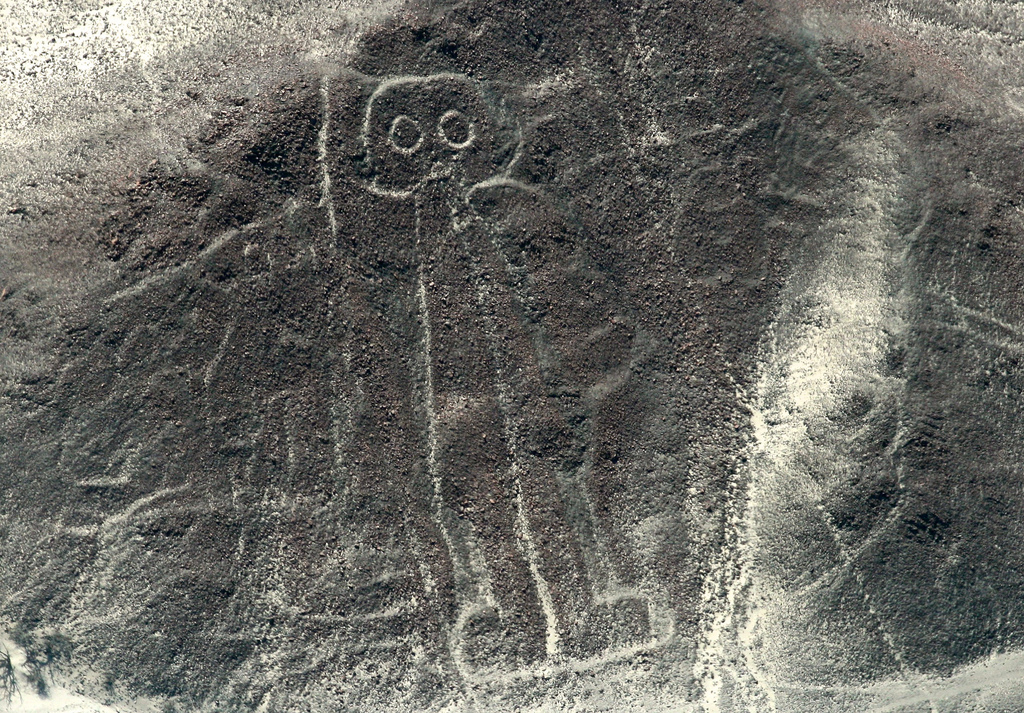 So much for responsible treatment of the planet.
So much for responsible treatment of the planet.
Peruvian officials were furious with Greenpeace activists who they said left footprints in the desert on the site of the famous, historical Nazca lines. The Nazca lines are a UN world heritage site – ancient desert drawings, as National Geographics explains, that have defied explanation:
“Since they became widely known in the late 1920s, when commercial air travel was introduced between Lima and the southern Peruvian city of Arequipa, the mysterious desert drawings known as the Nasca lines have puzzled archaeologists, anthropologists, and anyone fascinated by ancient cultures in the Americas. For just as long, waves of scientists—and amateurs—have inflicted various interpretations on the lines, as if they were the world's largest set of Rorschach inkblots. At one time or another, they have been explained as Inca roads, irrigation plans, images to be appreciated from primitive hot-air balloons, and, most laughably, landing strips for alien spacecraft.”
Associated Press (AP) reported that the environmental activists went into a prohibited area near the lines and laid out cloth lettering to spell out, “Time for Change! The Future is Renewable.” In a video posted at The Guardian, one of those activists said they chose the Nazca lines and blamed climate change for the disappearance of the Nazca culture.
Peruvian officials denounced the act.
“It’s a true slap in the face at everything Peruvians consider sacred,” Luis Jaime Castillo, the deputy culture minister, said, according to AP. Castillo said not even presidents were allowed to go where the activists trespassed without permission and “special shoes.”
“They are absolutely fragile. They are black rocks on a white background. You walk there and the footprint is going to last hundreds or thousands of years,” Castillo said. “And the line that they have destroyed is the most visible and most recognised of all.”
Peru was seeking criminal charges and demanding the names of those involved.
BBC News reported that Greenpeace responded saying, “Without reservation Greenpeace apologises to the people of Peru for the offence caused... We are deeply sorry for this.” The statement also admitted the act looked “careless and crass” and the organization was willing to face “fair and reasonable consequences” in Peru.
— Julia A. Seymour is Assistant Managing Editor for MRC Business at the Media Research Center. Follow Julia A. Seymour on Twitter.
